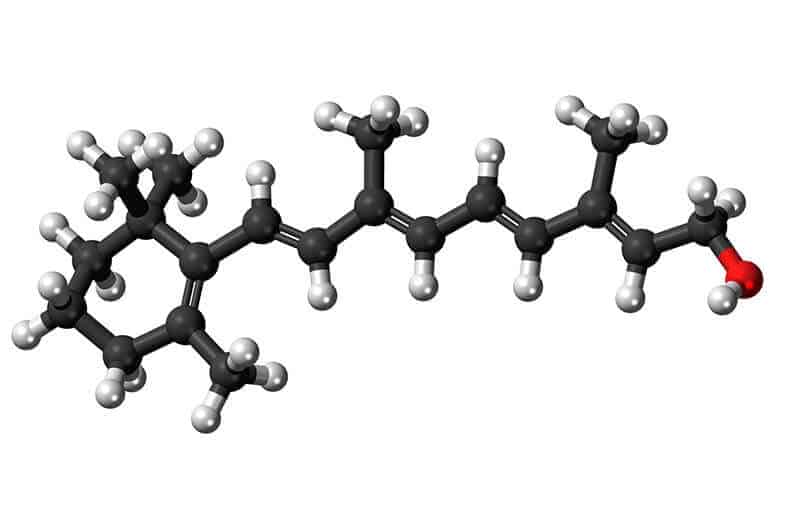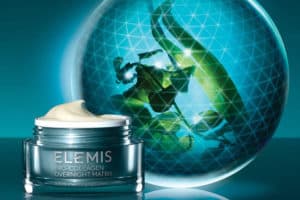Anyone who cares about their skin has heard of retinol, a form of vitamin A. It is usually associated with vision health in particular, but it goes beyond that. Retinol plays an important role in cell production, skin care, and our immune system, too. How long does it take for retinol to work on the skin?
It takes around 12 weeks for retinol to work, specifically when it comes to improvements in skin texture. It would take much longer, though, at least 6 months, to see its effects on fine lines and wrinkles. The time it takes to see results from retinol varies based on your age and overall health.
12 weeks might not be fast enough for those in a hurry to reap the benefits of retinol, but the results are worth the wait. You can see results faster with consistent use and a good skin care routine.
Read on to learn more about retinol and how long it takes for it to work on your skin.
Also, for an excellent retinol cream, take a look at our top pick, the LilyAna Naturals Retinol Cream for Face – Retinol Cream:
Click here to see it on Amazon.
How Long Does It Take for Retinol to Work?
Known as vitamin A1, retinol can be obtained from animal food sources and in the form of oral supplements and topical applications. Discovered in the early 1900s, retinol was first manufactured in 1947.
It’s one of the essential, safe, and effective medicines in the world. Vitamin A is fat-soluble and is, therefore, more readily absorbed in the body when taken with fat.
So how long does it take for retinol to work? As mentioned earlier, it takes about 12 weeks for retinol to work – to start seeing improvement in the skin. Gary Fisher, a dermatology professor at the University of Michigan Medical School, says, “In my experience, it takes about 12 weeks for retinoic acid to produce changes in the skin.”
So keep using the retinol product on a consistent basis for at least 12 weeks to see results.
This mirrors my own experience with clients and myself. I have seen results in as soon as about 3 or 4 weeks, with clients who have great health and follow a proper skincare routine. But usually, it takes about 3 months (12 weeks) for retinol to work and start seeing the results you want.
How effective retinol works will depend primarily on two things:
- Frequency of use – each person’s skin is a bit different when it comes to sensitivity. Someone who has just started using retinol might be advised by the dermatologist to apply topical retinol every other night or two times a week until the skin gets acclimatized to the substance.
- Strength of retinol – retinol products, usually sold over-the-counter, are generally milder on the skin, compared to those with prescription which tends to be more potent. The latter kind is bound to be more effective but should be used following the doctor’s instructions.
See the below video for a testimonial on retinol and how effective it was after using for 3 months:
Benefits of Retinol
We’ve mentioned how retinol plays a significant role in skincare, but since we, human beings, are social creatures, we give such great importance to how we look – our face. Retinol, in its pure state or as part of a formulation of a skincare product or supplement, does the following:
- Adds glow and suppleness to otherwise dull and dry skin. It works on a ‘cellular’ level, leading to a smoother, brighter, and renewed skin.
- Minimizes or prevents dark spots. With continued use, retinol formulations will result in an even skin tone by removing scars, blemishes, and other hyperpigmentation.
- Retards the formation of wrinkles. Using the right amount of retinol regularly will smoothe the fine lines and wrinkles that you now have and lessen the formation of new ones.
- Provides balance and control, especially to oily skin, preventing the clogging of skin pores, which translates to fewer skin breakouts and blackheads.
LilyAna Naturals Retinol Cream Moisturizer is a popular choice for adding retinol into your skin routine.
Click here to see it on Amazon.
I recommend using this cream every other day as every day might be too intense at first. If your skin doesn’t react, then you can use it every day until you see an improvement.
Retinol or vitamin A supports the health of our skin, which is the biggest organ of the body. Retinol takes care of our skin cells’ normal production since our bodies shed dead skin cells and replace them with new ones regularly. Those who don’t have the right amount of vitamin A in the body are more vulnerable to skin dryness and breakouts (e,g, acne).
Retinol also benefits you in ways other than improving your skin. Four non-skin benefits of retinol are as follows:
1. Vision Health
We need vitamin A to enable us to see clearly, particularly during the night. It is also vital in protecting our eyes’ retina from damage due to oxidative stress. People who don’t have enough vitamin A in their bodies are prone to develop night blindness and macular degeneration [2].
2. Strengthens the Immune System
Vitamin A serves to fortify our body’s immune system. It coats our defenses found in our eyes, skin, lungs, and genitals, which work to contain harmful and infectious agents. It also facilitates the production and regulation of white blood cells, which rids the bloodstream of bacteria and viruses. Those with strong immunity don’t easily succumb to respiratory infections or recover faster once they catch them.
3. Healthy Growth and Reproduction
First, for our bones to properly grow and develop, we need vitamin A along with calcium and protein. Some studies have suggested that having enough amount of vitamin A in the body helps lowers the risk of bone fractures.
Second, we need vitamin A for a healthy reproductive system (men and women alike), and this also applies to pregnancy.
4. Helps Lower Risk of Some Cancers
Though still not completely understood, vitamin A from plant sources (mainly beta carotene) is said to help reduce the chances of developing certain cancers like that of the cervix, bladder, lungs, and Hodgkin’s lymphoma. This is normally attributed to the ability of vitamin A to facilitate healthy cell development.
See the below video for a brief yet helpful introduction to retinol and its benefits:
Retinol Vs. Retinoid: What’s the Difference?

People are sometimes confused if retinol and retinoid are one and the same thing. Even though both are derived from vitamin A and are excellent guardians of the skin, there is, in fact, a difference between the two when it comes to how they work on the skin.
- Retinol – can be bought over-the-counter and has a smaller concentration on the formulation in which it is contained. As such, it works gradually and takes longer to have a noticeable effect on the skin, usually 3 months before you start feeling and seeing results.
Examples are oils, serums, or creams that you can buy without the benefit of any prescription. Interestingly, retinol is also a kind of retinoid, or what’s called the ‘first-generation’ retinoid.
- Retinoid –retinoid formulations have bigger concentrations of vitamin A/retinoic acid. Usually, they cannot be purchased OTC as they require a doctor’s prescription.
Hence, it’s easily absorbed by the skin, and the results can be seen much earlier than that of retinol – around less than 2 months. However, since it’s more potent than retinol, retinoid might readily cause irritation, and therefore, it should be used carefully and sparingly, as instructed by the doctor.
Can Retinol Treat Skin Conditions?
Retinol and its heavy formulation of retinoid can be used to treat certain skin conditions:
- Acne – since the early 1970s, retinoid has been proven to help treat moderate to severe cases of acne by unclogging the pores and paving the way for other related medications to work on the problem area. It also lessens outbreaks and scar formation. Retinol can greatly improve and clear acne in about 3 months of consistent use.
- Wrinkles – retinoid facilitates the production of collagen, the protein that provides skin elasticity. Because it also works on the skin’s new blood vessels, the skin becomes pinkish, with only minimal traces of age spots. Generally, regular and consistent use of the milder form retinol can alleviate the effects of sun-damaged skin. Over time, about 3 to 6 months of regular use, retinol will help minimize wrinkles and fine lines.
- Psoriasis – as prescribed by the doctor, retinoid can help patients with psoriasis [3] by slowing the production of skin cells. The condition involves the abnormal (faster) growth of skin cells.
- Warts – Retinoid tends to be the final alternative of doctors for treating warts that keep coming back, particularly when all else fails. Similar to the case of psoriasis, retinoid serves to arrest the cell growth of warts.
Still wondering how long it takes for retinol to work? Or wondering why you haven’t seen results yet? See the below video, which talks of Retin-A, a stronger version of retinol, and what happens if you aren’t seeing results:
What Are the Side Effects of Retinol?
There are two sides to the story: retinol deficiency and overload. People who lack vitamin A in their body are prone to health issues such as:
- Skin problems (acne, irritation)
- Eyesight issues (night blindness)
- Weak immune system (susceptible to infections)
- Bone fractures
Meanwhile, any vitamin A overload is also bad. For instance, pregnant women with excessive vitamin A levels are prone to have babies with birth defects.
As vitamin A is stored in the body, excessive consumption can result in toxic levels, causing symptoms like headaches, dizziness, and nausea. However, it’s more common to experience an ‘overload’ from the consumption of animal food sources, supplements, or medicines.
Conclusion – How Long Does It Take for Retinol to Work?
So, how long does it take for retinol to work on the skin? It takes about 12 weeks for retinol to work, and this is around the time that you will start noticing gradual changes in your skin’s texture. Anti-aging effects like reduction in fine lines and wrinkles will take longer, about 6 months.
Before leaving, here are some other takeaways about retinol:
- Retinol, a vitamin A derivative, can be found mostly in animal food sources, and also in some green leafy vegetables and yellow/orange fruits
- Aside from skincare, retinol supports the eyesight, immune system, and cell production.
- Though vitamin A deficiency can result in conditions like impaired vision, weak immune system, overdosing on it is also not good, especially for pregnant women, as it may lead to birth defects.
- Retinol and retinoid are both vitamin A derivatives, but the latter is more potent as it contains more concentration of the active ingredient (retinoic acid) and works faster on the skin.
Related reading:
How Long Does It Take for Ceramides to Work?
How Long Does Salicylic Acid Take to Absorb?
Retin-A vs Benzoyl Peroxide vs Salicylic Acid for Body Acne







